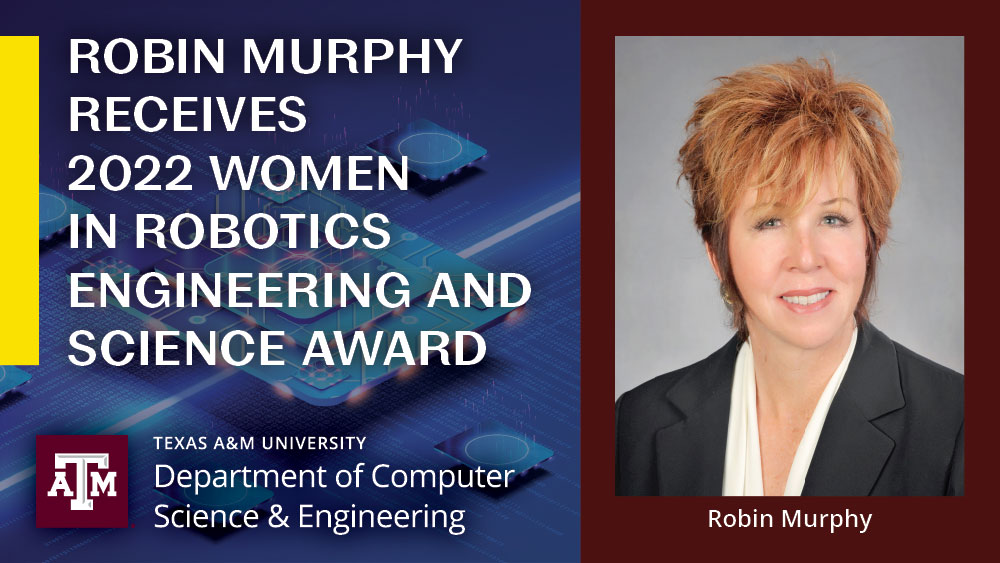
Dr. Robin Murphy, Raytheon Professor in the Department of Computer Science and Engineering at Texas A&M University, was honored with a Women in Robotics Engineering and Science (WiRES) Award for her contributions to disaster robotics and human-robot interaction during the 2022 Institute of Electrical and Electronics Engineers/Robotics Society of Japan International Conference on Intelligent Robots and Systems (IROS). She was one of 35 women from 12 countries to be recognized.
The conference is one of the largest and most influential conferences in robotics and was held in Kyoto, Japan, on Oct. 23-27 of this year. The recipients were honored during a special awards ceremony and given a prize of 20,000 yen.
Murphy has published 18 papers in IROS, starting in 1989 as a graduate student at Georgia Tech University.
“Back in 1989, there were almost no women in robotics,” said Murphy. “The ratio was 100 men for every woman. In the past 35 years, that has changed. Not only are there many more women, but in the WiRES 35 group, you can also see the leadership and accomplishments of these women. I am truly honored to be part of this group.”
Her papers have mostly reported her group’s basic research in autonomously detecting and recovering when a robot is failing and predicting the successful operation of robots and human-robot teams in extreme environments. Her most recent paper, published with Dr. Jason Moats, director of the Texas A&M Engineering Extension Service, for IROS 2021, presented a model of responsible innovation during disaster response. It won an honorable mention for the Best Paper in Ethical Robotics from the Systems Center for Human-Compatible Artificial Intelligence at the University of California, Berkeley, and the Berkeley Existential Risk Initiative.
“My paper back in 1989 was one of the first things I had published with my advisor and an important first step in my career,” said Murphy. “I still remember how proud — and nervous — I was. Since then, nine of my students have published at IROS, cementing their careers as well. I think of this award as really our award.”
View a short retrospective video showing how much robots have changed since 1989. The video shows eight ground, marine and aerial robots featured in Murphy's IROS publications.